David McRaney's Blog, page 8
March 6, 2023
YANSS 253 – The psychology behind the world’s greatest cons, from hacking Press Your Luck to stage hypnosis to Operation Mincemeat
In this episode, we sit down with famed stage magician, infamous instructor of the school of scams, Brian Brushwood, whose new podcast explores the world’s greatest con artists and con jobs from World War II to modern game shows.
Listen on Apple Listen on Spotify Listen on GoogleStitcher – RSS – Soundcloud – Simplecast – Amazon Music – Audible
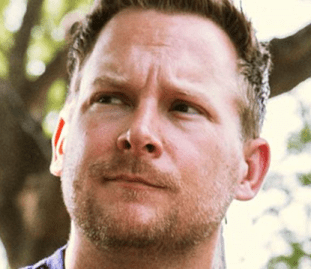 Brian Brushwood
Brian Brushwood“Cons don’t fool us because we’re stupid, they fool us because we’re human.”
In this episode, we sit down with Brushwood, a famed stage magician and infamous instructor of the school of scams whose new podcast explores the world’s greatest con artists and con jobs from World War II to modern game shows.
THE WORLD’S GREATEST CON WEBSITE
We cover everything in this episode from why you can’t con an honest person to the power of shame and fame to folk psychology to how the British conned Hitler using one of the oldest tricks in the book to how one man broke the code for Press Your Luck earning him the most money ever awarded in a single day on any program in the history of game shows.
Links and SourcesApple Podcasts – Stitcher – RSS – Google Podcasts – Soundcloud – Simplecast – Amazon Music – Audible – Spotify
February 6, 2023
YANSS 252 – Why procrastination is neither a weakness nor a character flaw
It’s February. It’s that time of year when we start to wonder if we might not follow through with our New Year’s resolutions. It’s that time of the year when procrastination becomes a centerpiece of our psychological concerns.
If you only just now started working and answering emails and eating properly, that this just means you are a normal human living in really weird times, and everyone else is also slowly, and begrudgingly, starting to accept the fact that it is 2023 as well
Our guest in this episode is professor, author, therapist, and speaker Britt Frank, a trauma specialist who treats people with a unique and powerful set of techniques and approaches which, taken together, help clients to get out of the feeling of being STUCK. Author of The Science of Stuck, she says, “Procrastination is not a character flaw. Nor is it a sign of weakness. Nor is it a sign of laziness. Procrastination is an indicator that internal consent has not been given. When our inner parts are distressed, afraid, sad, angry, grief-stricken or anxious, it is important to listen to their concerns, not to shame them or coerce them into action.”
In the show you’ll learn about the physiological origins of procrastination – the inner brake pedal and gas pedal – and what to do to escape the two different versions of this universal challenge to getting unstuck and getting things done.
Apple Podcasts – Stitcher – RSS – Google Podcasts
Soundcloud – Simplecast – Amazon Music – Audible – Spotify
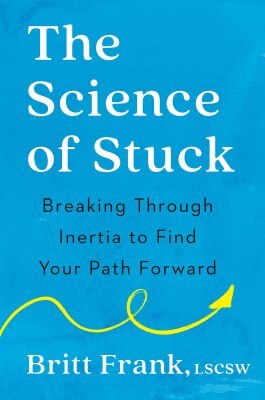
— OFFICIAL DESCRIPTION OF THE BOOK–
A research-based tool kit for moving past what’s holding you back—in life, in love, and in work.
We all experience stuckness in our lives. We feel stuck in our relationships, career paths, body struggles, addiction issues, and more. Many of us know what we need to do to move forward—but find ourselves unable to take the leap to make it happen. And then we blame and shame ourselves, and stay in a loop of self-doubt that goes nowhere.
The good news is you’re not lazy, crazy, or unmotivated. In this empowering and action-oriented guide, you’ll discover why we can’t think our way forward—and how to break through what’s holding us back. Using an eclectic approach and a customizable plan that’s as direct or as deep as you want, this life-changing guide empowers you to:
• break old habits and patterns
• gain perspective on pain and trauma from the past
• free yourself from the torturous “why” questions
• take control of your choices to create the life you want
Bringing together research-backed solutions that range from shadow work to reparenting, embodied healing, and other clinical practices, along with empowering personal stories, this book is a hands-on road map for moving forward with purpose, confidence, and the freedom to become who you’re truly meant to be.
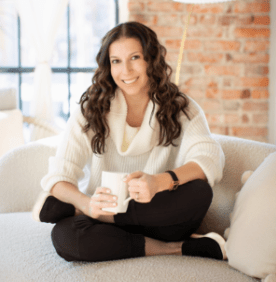 Britt Frank
Britt FrankBritt Frank is a therapist, teacher, speaker, and trauma specialist who is committed to dismantling the mental health myths that keep us feeling stuck and sick.
Her work focuses on empowering people to understand the inner mechanisms of their brains and bodies. When we know how things work, the capacity for choice is restored and life can and does change.
Whether she’s leading a workshop, teaching a class, or working individually with private clients, Britt’s goal is to educate, empower, and equip people to transform even their most persistent and long-standing patterns of thinking and doing.
This is a link to her Instagram.
Apple Podcasts – Stitcher – RSS – Google Podcasts
Soundcloud – Simplecast – Amazon Music – Audible – Spotify
January 22, 2023
YANSS 251 – Why Nick Sonnenberg doesn’t believe there just aren’t enough hours in the day to get everything done
Nick Sonnenberg doesn’t believe there just aren’t enough hours in the day to get everything done.
That’s because when his business was in crisis mode, he developed a framework for eliminating inefficiencies and preventing the sort of metawork – working on working – that leads to scavenger hunts and meetings that could be emails, and for that matter, email runarounds that get everyone ever farther from inbox zero. He turned that framework into a consultancy business, and put it all together in a new book for people who feel underwater titled Come up For Air.
Apple Podcasts – Stitcher – RSS – Google Podcasts
Soundcloud – Simplecast – Amazon Music – – Spotify
OFFICIAL DESCRIPTION OF THE BOOK
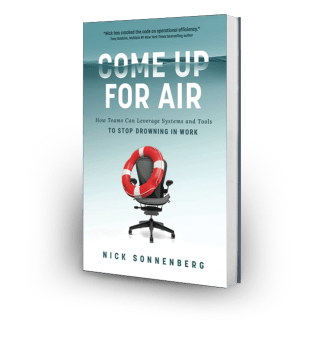
“Forget the old concepts of time management and the hustle culture of working until you burn out. With the right blueprint, you and your entire team can get more done in far fewer hours. Come Up For Air is that blueprint.
Through years of building leading efficiency consulting business, Nick Sonnenberg has discovered the primary reason why so many teams are overwhelmed. It’s not because they don’t have enough time, managers expect too much of their employees, or there aren’t enough people. The problem is that everyone is drowning in unnecessary work and inefficiencies that prevent them from focusing on the work that drives results.
In Come Up For Air, you’ll discover the CPR Business Efficiency Membership, a proven system for leaders, managers, and teams to maximize their performance and reduce overwhelm by using the right tools in the right way at the right time. The end result? More output, less stress, happier employees, and the potential to gain an extra full day per week in productivity to use however you’d like.
You’ll learn the proven empirical strategies from someone who not only turned his company around when it was on the verge of bankruptcy but has also helped thousands of organizations worldwide become more efficient, leverage the right productivity tools and prepare for explosive growth.”
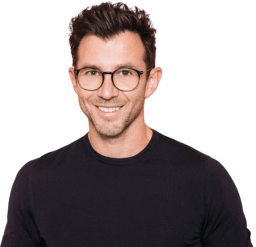 Nick Sonnenberg
Nick SonnenbergNick Sonnenberg is an entrepreneur, columnist, and guest lecturer at Columbia University. He is the founder and CEO of Leverage, an operational efficiency consultancy that helps companies with time management, efficiency, and automation.
Apple Podcasts – Stitcher – RSS – Google Podcasts
Soundcloud – Simplecast – Amazon Music – – Spotify
January 8, 2023
YANSS 250 – The scientific investigation of the emotion of awe: why we feel it, and how it improves our lives
In this episode we sit down with psychologist Dacher Keltner, one of the world’s leading experts on the science of emotion, the man Pixar hired to help them write Inside Out. In his new book – Awe: The New Science of Everyday Wonder and How It Can Transform Your Life – he outlines his years of work in this field, the health benefits of awe, the evolutionary origins and likely functions, and how to better pursue more awe and wonder in your own life.
iTunes – Stitcher – RSS – Soundcloud – Simplecast – Amazon Music – Audible – Spotify
OFFICIAL DESCRIPTION OF THE BOOK
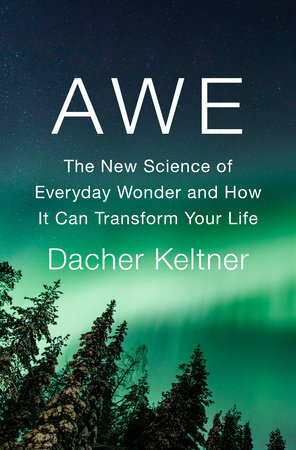
Awe is mysterious. How do we begin to quantify the goose bumps we feel when we see the Grand Canyon, or the utter amazement when we watch a child walk for the first time? How do you put into words the collective effervescence of standing in a crowd and singing in unison, or the wonder you feel while gazing at centuries-old works of art? Up until fifteen years ago, there was no science of awe, the feeling we experience when we encounter vast mysteries that transcend our understanding of the world. Scientists were studying emotions like fear and disgust, emotions that seemed essential to human survival. Revolutionary thinking, though, has brought into focus how, through the span of evolution, we’ve met our most basic needs socially. We’ve survived thanks to our capacities to cooperate, form communities, and create culture that strengthens our sense of shared identity—actions that are sparked and spurred by awe.
In Awe, Dacher Keltner presents a radical investigation and deeply personal inquiry into this elusive emotion. Revealing new research into how awe transforms our brains and bodies, alongside an examination of awe across history, culture, and within his own life during a period of grief, Keltner shows us how cultivating awe in our everyday life leads us to appreciate what is most humane in our human nature. And during a moment in which our world feels more divided than ever before, and more imperiled by crises of different kinds, we are greatly in need of awe. If we open our minds, it is awe that sharpens our reasoning and orients us toward big ideas and new insights, that cools our immune system’s inflammation response and strengthens our bodies. It is awe that activates our inclination to share and create strong networks, to take actions that are good for the natural and social world around us. It is awe that transforms who we are, that inspires the creation of art, music, and religion. At turns radical and profound, brimming with enlightening and practical insights, Awe is our field guide, from not only one of the leading voices on the subject but a fellow seeker of awe in his own right, for how to place awe as a vital force within our lives.
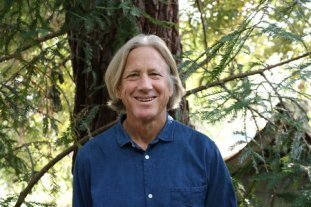 Dacher Keltner
Dacher KeltnerDacher Keltner is a professor of psychology at the University of California, Berkeley and the faculty director of the UC Berkeley Greater Good Science Center.
A renowned expert in the biological and evolutionary origins of human emotion, Dr. Keltner studies the science of compassion, awe, love, and beauty, and how emotions shape our moral intuition.
His research interests also span issues of power, status, inequality, and social class. He is the author of the best-selling book Born to Be Good: The Science of a Meaningful Life and of The Compassionate Instinct.
iTunes – Stitcher – RSS – Soundcloud – Simplecast – Amazon Music – Audible – Spotify
YANSS 250 – The scientific investigation of the emotion of awe, why we feel it, and how it improves our lives
Temple Grandin was born at a time when words like neurodivergent and neurotypical had yet to enter the lexicon and autism was not well understood. Since she didn’t develop speech until much later than most children, she might have led a much different life if it hadn’t been for people around her who worked very hard to open up a space for her to thrive and explore her talents and abilities. In this episode we discuss all that as well as her latest book, Visual Thinking, all about three distinct ways that human brains create human minds to make sense of the world outside of their skulls.
iTunes – Stitcher – RSS – Patreon – Soundcloud – Simplecast – Spotify – Amazon – Audible
In this episode we sit down with psychologist Dacher Keltner, one of the world’s leading experts on the science of emotion, the man Pixar hired to help them write Inside Out. In his new book – Awe: The New Science of Everyday Wonder and How It Can Transform Your Life – he outlines his years of work in this field, the health benefits of awe, the evolutionary origins and likely functions, and how to better pursue more awe and wonder in your own life.
OFFICIAL DESCRIPTION OF THE BOOK

Awe is mysterious. How do we begin to quantify the goose bumps we feel when we see the Grand Canyon, or the utter amazement when we watch a child walk for the first time? How do you put into words the collective effervescence of standing in a crowd and singing in unison, or the wonder you feel while gazing at centuries-old works of art? Up until fifteen years ago, there was no science of awe, the feeling we experience when we encounter vast mysteries that transcend our understanding of the world. Scientists were studying emotions like fear and disgust, emotions that seemed essential to human survival. Revolutionary thinking, though, has brought into focus how, through the span of evolution, we’ve met our most basic needs socially. We’ve survived thanks to our capacities to cooperate, form communities, and create culture that strengthens our sense of shared identity—actions that are sparked and spurred by awe.
In Awe, Dacher Keltner presents a radical investigation and deeply personal inquiry into this elusive emotion. Revealing new research into how awe transforms our brains and bodies, alongside an examination of awe across history, culture, and within his own life during a period of grief, Keltner shows us how cultivating awe in our everyday life leads us to appreciate what is most humane in our human nature. And during a moment in which our world feels more divided than ever before, and more imperiled by crises of different kinds, we are greatly in need of awe. If we open our minds, it is awe that sharpens our reasoning and orients us toward big ideas and new insights, that cools our immune system’s inflammation response and strengthens our bodies. It is awe that activates our inclination to share and create strong networks, to take actions that are good for the natural and social world around us. It is awe that transforms who we are, that inspires the creation of art, music, and religion. At turns radical and profound, brimming with enlightening and practical insights, Awe is our field guide, from not only one of the leading voices on the subject but a fellow seeker of awe in his own right, for how to place awe as a vital force within our lives.
 Dacher Keltner
Dacher KeltnerDacher Keltner is a professor of psychology at the University of California, Berkeley and the faculty director of the UC Berkeley Greater Good Science Center.
A renowned expert in the biological and evolutionary origins of human emotion, Dr. Keltner studies the science of compassion, awe, love, and beauty, and how emotions shape our moral intuition.
His research interests also span issues of power, status, inequality, and social class. He is the author of the best-selling book Born to Be Good: The Science of a Meaningful Life and of The Compassionate Instinct.
iTunes – Stitcher – RSS – Patreon – Soundcloud – Simplecast – Spotify – Amazon – Audible
December 25, 2022
YANSS 249 – The power of surprise to change, grow, and improve your life and the lives of others
In this episode, Micheal Rousell, author of The Power of Surprise, explains the science of surprise at the level of neurons and brain structures, and then talk about how surprises often lead to the stories we tell ourselves about ourselves, the different personal narratives that guide our behaviors and motivations and goals, and, perhaps most importantly, our willingness to be surprised again so that we can change and grow.
In the show, you will how we can use the current understanding of how surprise leads to learning, and how learning depends on interpretation, to improve our lives, and the lives of others
Download – iTunes – Stitcher – RSS – Patreon – Soundcloud – Simplecast – Spotify
Here is the official description of his new book:
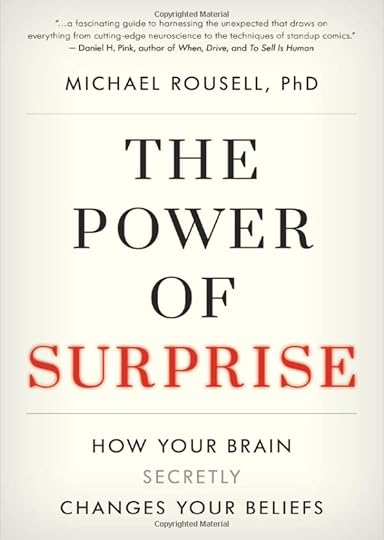
“Michael Rousell examines the rich and complex nuances of the science of surprise and shows us how we can use it strategically to enrich lives.
Random events transform us. After studying formative events, moments that define us, for over three decades, Michael Rousell discovered that most of them took place during a spark of surprise. This breakthrough launched a fascinating journey from neuroscience to stand-up comedy. Rousell draws on research from a wide variety of brain science disciplines (cognition, motivation, neuroscience, psychology, artificial intelligence, persuasion, evolution, and learning), then examines those who already use surprise strategically (comedians, film directors, entertainers, magicians, and novelists). This examination illustrates the hidden, yet critical features inherent in surprise, while demystifying the complexities.
Surprise evolved as a mechanism to instantly change our beliefs. Rousell shows how surprising events produce invisible influence because they open a window to spontaneous belief change with no warning or conscious awareness. You’ll see how seemingly minor features of surprise create profound differences and can be used to strategically enrich lives, create positive mindsets, and maximize influence.”
Links and SourcesDownload – iTunes – Stitcher – RSS – Patreon – Soundcloud – Simplecast – Spotify
December 12, 2022
YANSS 248 – Temple Grandin’s vision for a world better suited to different styles of thinking
Temple Grandin was born at a time when words like neurodivergent and neurotypical had yet to enter the lexicon and autism was not well understood. Since she didn’t develop speech until much later than most children, she might have led a much different life if it hadn’t been for people around her who worked very hard to open up a space for her to thrive and explore her talents and abilities. In this episode we discuss all that as well as her latest book, Visual Thinking, all about three distinct ways that human brains create human minds to make sense of the world outside of their skulls.
iTunes – Stitcher – RSS – Patreon – Soundcloud – Simplecast – Spotify – Amazon – Audible
OFFICIAL DESCRIPTION FROM THE BOOK WEBSITE
A quarter of a century after her memoir, Thinking in Pictures, forever changed how the world understood autism, Temple Grandin—the “anthropologist on Mars,” as Oliver Sacks dubbed her—transforms our awareness of the different ways our brains are wired. Do you have a keen sense of direction, a love of puzzles, the ability to assemble furniture without crying? You are likely a visual thinker.
With her genius for demystifying science, Grandin draws on cutting-edge research to take us inside visual thinking. Visual thinkers constitute a far greater proportion of the population than previously believed, she reveals, and a more varied one, from the photo-realistic object visualizers like Grandin herself, with their intuitive knack for design and problem solving, to the abstract, mathematically inclined “visual spatial” thinkers who excel in pattern recognition and systemic thinking. She also makes us understand how a world increasingly geared to the verbal tends to sideline visual thinkers, screening them out at school and passing over them in the workplace. Rather than continuing to waste their singular gifts, driving a collective loss in productivity and innovation, Grandin proposes new approaches to educating, parenting, employing, and collaborating with visual thinkers. In a highly competitive world, this important book helps us see, we need every mind on board.
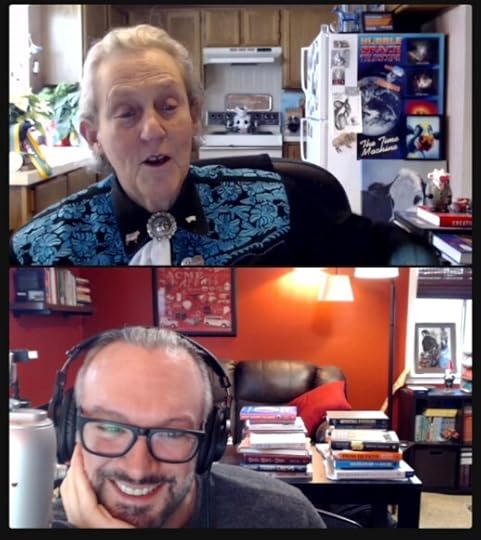 Temple Grandin and David McRaney
Temple Grandin and David McRaneyTemple Grandin is a professor of animal science at Colorado State University and the author of the New York Times bestsellers Animals in Translation, Animals Make Us Human, The Autistic Brain, and Thinking in Pictures, which became an HBO movie starring Claire Danes. Dr. Grandin has been a pioneer in improving the welfare of farm animals as well as an outspoken advocate for the autism community. She resides in Fort Collins, Colorado.
iTunes – Stitcher – RSS – Patreon – Soundcloud – Simplecast – Spotify – Amazon – Audible
November 27, 2022
YANSS 247 – Why narcissism isn’t excessive self-love but excessive self-loathing
In this episode we explore what narcissism is (and what is most-definitely is not).
iTunes – Stitcher – RSS – Patreon – Soundcloud – Simplecast – Spotify – Amazon – Audible
There is a form of narcissism which has been, up until now, confused with psychopathy. But a new paper, the result of years of experiments, suggests narcissists are not psychopaths, and psychopaths are not narcissists.
In the psychological literature, narcissism comes in two varieties. Grandiose narcissists tend to really, truly love themselves and heavily manipulate their social environment for personal gain. Vulnerable narcissists don’t love themselves, not their true selves. Vulnerable narcissists love their image, and they are highly aware of the fact that it is an image and work very hard to prevent anyone else realizing that. According to the research explored in this episode, there is no such thing as a grandiose narcissist – that’s just another way to describe a psychopath.
Vulnerable narcissists like Don Draper in Mad Men cope with their insecurity by donning a mask, and then spend most of their lives protecting that mask out of a fear of what will happen if people ever see what it hides.
In fact, narcissism may even need to be renamed, because according to the research explored in this episode, the evidence suggests it isn’t excessive self-love, it’s excessive self-loathing.

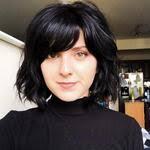 Mary Kowalchyk
Mary KowalchykMary Kowalchyk is a Clinical Research Coordinator in the Department of Psychiatry at ISMMS. Her research interests include prodromal psychosis, self-image and world view in psychosis populations, and innovative treatment modalities. Twitter: @marykowalchyk
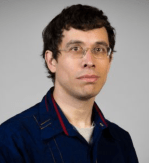 Pascal Wallisch
Pascal Wallisch“How do people construct the subjective reality they inhabit?” That’s the question at the center of the work of Pascal Wallisch, who studies how human beings differ in the their interpretations of the objective truth. He is a Clinical Associate Professor at the Department of Psychology at New York University. Twitter: @pascallisch


Support the show directly by becoming a patron! Get episodes one-day-early and ad-free. Head over to the YANSS Patreon Page for more details.

Links and Sources
iTunes – Stitcher – RSS – Patreon – Soundcloud – Simplecast – Spotify – Amazon – Audible
November 14, 2022
YANSS 246 – How to create a garbage fountain of ideas to better harness the output of your unique ideaflow
In this episode we sit down with Jeremy Utley of the Stanford d.school to discuss his new book, Ideaflow, which is all about how to create a practice for producing and trading ideas in massive quantities – whether in an organization or as an individual entrepreneur or content-creator – along with a system for sorting the garbage from the gold. We discuss, among many other things, why it is important to focus on input more than output, how to stop obsessing over quality while generating quantity, and peanut butter pumps.
iTunes – Stitcher – RSS – Patreon – Soundcloud – Simplecast – Spotify – Amazon – Audible
OFFICIAL DESCRIPTION FROM THE BOOK WEBSITE
Innovation is not an event; it’s a practice. Don’t leave the big ideas to the creatives. Revolutionize your creative process by mastering Ideaflow: the proven strategy that anyone can use to routinely generate and commercialize innovative ideas. Whether you’re an entrepreneur, student, C-suite leader, or anything in between, this book will teach you how to unleash creativity and innovation to magnify and accelerate all your other efforts, by simply building it into your daily routine.
The number of new ideas your organization can produce is a metric for its ability to generate novel solutions to any given problem. This ideaflow is the most crucial business metric that you’ve never considered. Every business problem is an idea problem. How well you can solve those problems is how well you and your business can perform, navigate uncertainty, and develop innovations.
Drawing from their decades of teaching Silicon Valley entrepreneurs and Fortune 500 executives at the world famous Stanford d.school and leading innovative companies like Patagonia, Klebahn and Utley offer a battle-tested framework to exponentially boost your ideaflow.
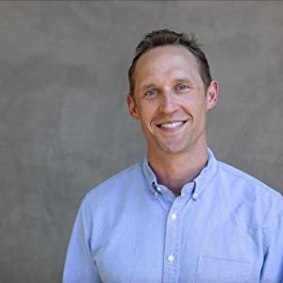 Jeremy Utley
Jeremy UtleyJeremy Utley is the Director of Executive Education at Stanford’s d.school and an Adjunct Professor at Stanford’s School of Engineering. He is the co-host of the d.school’s widely popular program, “Stanford’s Masters of Creativity.” He is the coauthor of Ideaflow: The Only Business Metric That Matters (Portfolio) with Perry Klebahn.
He is also on the teaching teams of d.org, an organizational design course, and Transformative Design, a course that turns the tools of design onto graduate students’ lives. One of the most prodigious collaborators at the d.school, Jeremy has taught alongside the likes of Lecrae, Dan Ariely, Laszlo Bock, and Greg McKeown.
iTunes – Stitcher – RSS – Patreon – Soundcloud – Simplecast – Spotify – Amazon – Audible
YANSS 245 – The Conspiracy Theorist Who Changed His Mind
I recently sat down with the great Tim Harford for an interview on his wonderful podcast, Cautionary Tales, and Tim asked me to tell a story from my new book, How Minds Change. In this episode, I play that episode in its entirety.
iTunes – Stitcher – RSS – Patreon – Soundcloud – Simplecast – Spotify – Amazon – Audible
OFFICIAL DESCRIPTION FROM THE CAUTIONARY TALES WEBSITE
Charlie Veitch was certain that 9/11 was an inside job. The attack on the World Trade Center wasn’t the work of Al-Qaeda, but an elaborate conspiracy. He became a darling of so-called “9/11 truthers” – until he actually visited Ground Zero to meet architects, engineers and the relatives of the dead. The trip changed his mind… there was no conspiracy.
His fellow “truthers” did not take Charlie’s conversion well.
David McRaney (host of You Are Not So Smart and author of How Minds Change: The Surprising Science of Belief, Opinion and Persuasion) joins Tim Harford to discuss what happened to Charlie Veitch; what it tells us about those who hold strong beliefs even in the face of damning contrary evidence; and why persuasion isn’t always the right answer.
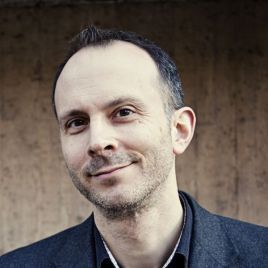 Tim Harford
Tim HarfordTim Harford’s long-running column in the Financial Times, “The Undercover Economist,” reveals the economic ideas behind everyday experiences. His first book, The Undercover Economist, was published in 30 languages and sold more than 1.5 million copies. He is also the author of eight other books, including Messy, and his latest, The Data Detective.
He has hosted several radio series for the BBC, including More or Less, How to Vaccinate The World, and 50 Things That Made the Modern Economy. The Times of London has rated both More or Less and 50 Things among the world’s best 10 podcasts. Tim has written for publications on both sides of the Atlantic, including Esquire, Forbes, Wired, New York Magazine, The Guardian, The Sunday Times, The Washington Post, and The New York Times. He lives in Oxford with his wife and three children.
iTunes – Stitcher – RSS – Patreon – Soundcloud – Simplecast – Spotify – Amazon – Audible
David McRaney's Blog
- David McRaney's profile
- 582 followers



